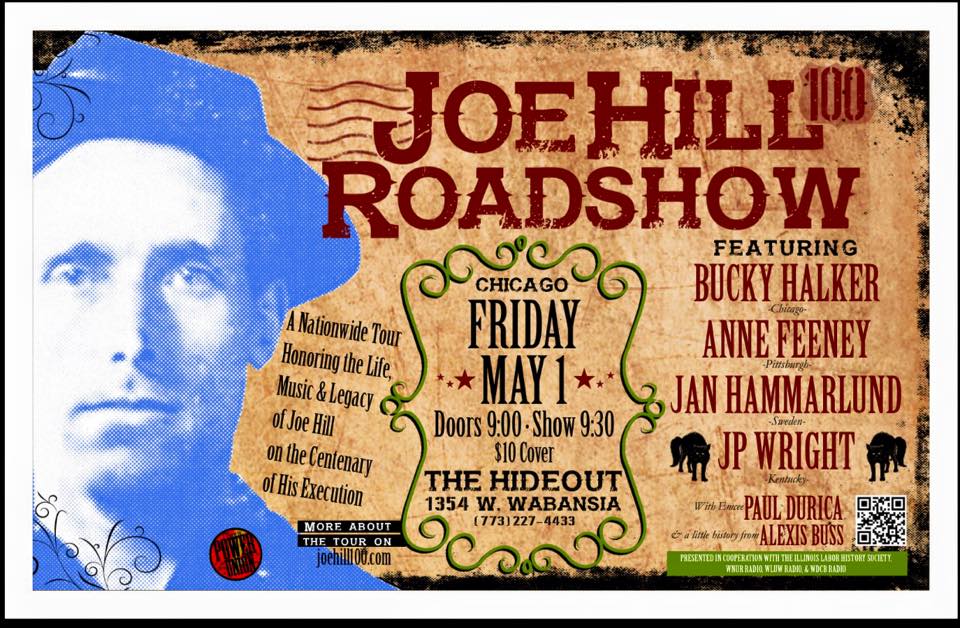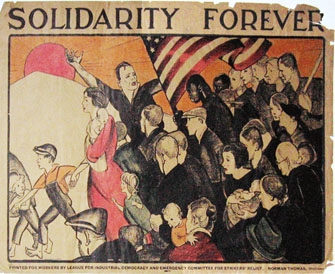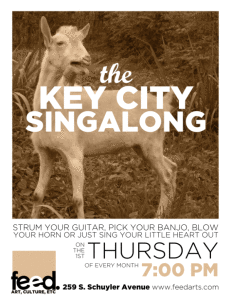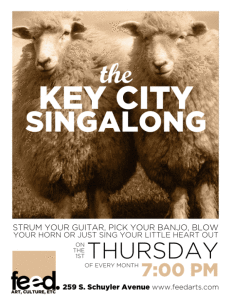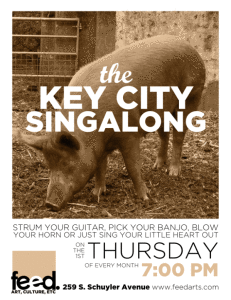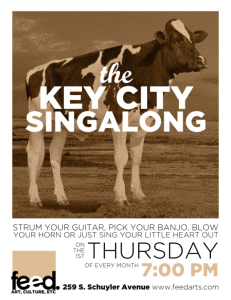We gathered at FEED on the evening of International Workers’ Day for our very first singalong.
Michael Costanza had asked that I say a few words at the onset about the idea behind what we were doing there, so here is what I said (more or less).
The main idea behind what we are doing is pretty plain. It’s a joy to raise our voices together in song! We used to do more of it before the days of mass media, but over the last century, for more and more people, music has become just another commodity to be bought and sold, like a pair of sneakers. It’s something that we pay 99 cents for on iTunes, or it’s something that some people get rich making or selling, or something that people dream of getting rich making or selling. Our very sick society tells us that if we don’t place a monetary value on something, that it has no value. So this beautiful, rich, ancient tradition of singing together has been stolen from us.
“What we’re doing here tonight,” I said “is stealing it back.”
We began with Woody Guthrie’s This Land is Your Land and ended with John Tams’ Rolling Home. In between we went around the circle each in turn, singing everyone from Graham Nash to Pete Seeger to Jeff Tweedy to James Taylor. We even spent a little time with Pink Floyd.
Dylan, of course…
Also, we sang a few traditional songs, like Old Joe Clark and The Farmer In The Dell – and a couple of old union songs, too, in honor of the day.
It was nice that everyone who wished to do so had an opportunity to choose or to lead a song. We were a mess on some, but it was fun anyway. There were some beautiful harmonies, great energy and lots of smiling faces throughout the evening. Some of us brought lyric sheets to share. Some of the songs we looked up in songbooks or on the Web. Some, we simply sang along with the leader as best we could.
Future singalongs may be conducted differently, with a little more structure at some times and a little less on others, but however we structure things, I hope that the spirit of our first singalong will remain.
Because on the night of May 1st, 2014, thirty-one souls in Kankakee (from toddler to senior citizen) remembered and proclaimed that the music belongs to all of us.
###
P.S.: If you’re on Facebook, you can find some photos of our first gathering here.
